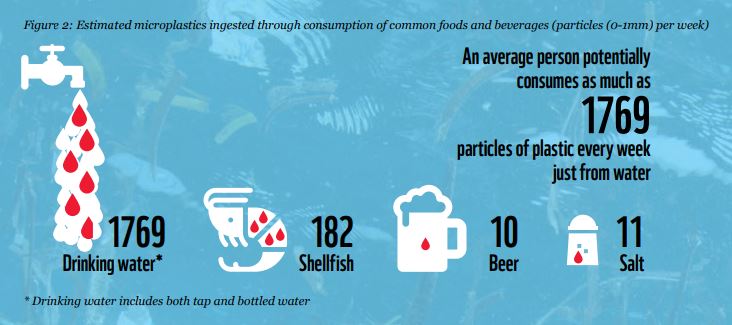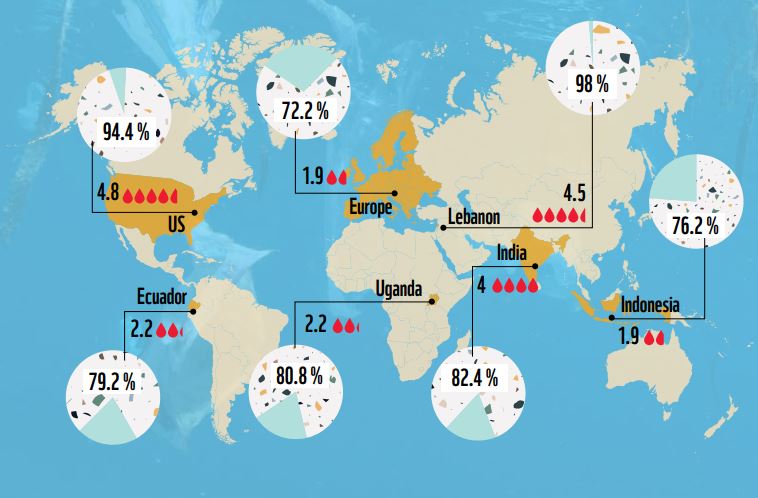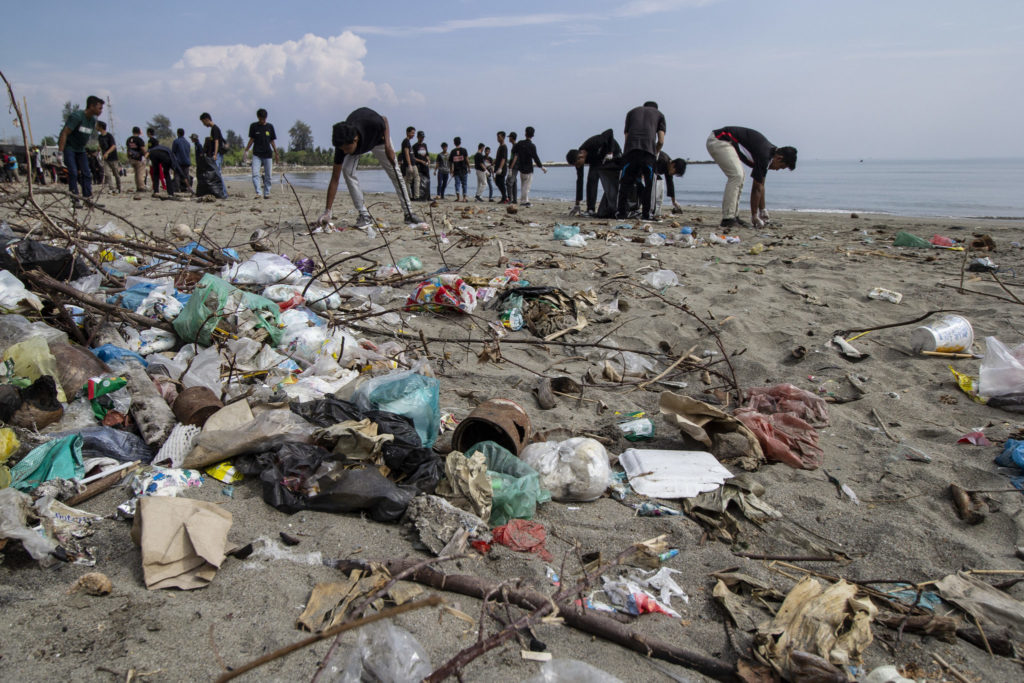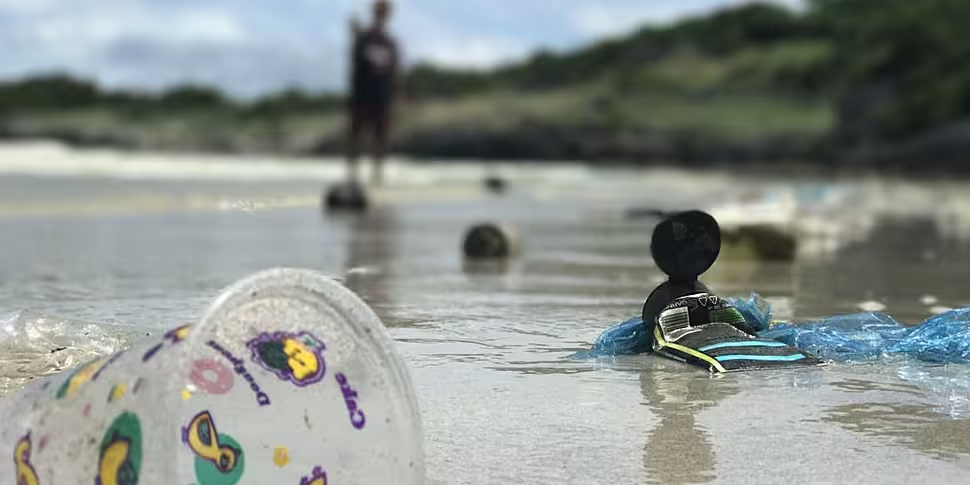New research has found that plastic pollution has become so widespread, the average person could be ingesting the equivalent of a credit card every week.
The study, commissioned by WWF International, finds that people could be ingesting around 2000 tiny pieces of plastic a week – equal to about 5 grams.
That is around 21 grams a month or 250 a year.
It finds that the most common way people ingest microplastics is through the consumption of commons foods and drinks like water, shellfish, beer and salt.
 Estimated microplastics ingested through consumption of common foods and beverages. Image: WWF International
Estimated microplastics ingested through consumption of common foods and beverages. Image: WWF InternationalOn Newstalk Breakfast this morning, environmental scientist Dr Cara Augustenborg said the figures are not surprising.
“Plastics are constantly breaking down into smaller and smaller particles,” she said.
“One of the largest sources of marine litter is things like plastic bottles, plastic straws and cutlery which break down into what they call micro-plastics.
“So, even the water that we drink out of the plastic bottles that we may buy out of the store; so that is potentially one source of this plastic pollution that we are ingesting.”
 Map of average percentage of tap water sample containing plastic fibers and average number of fibers (>100um) per 500ml. Image: WWF
Map of average percentage of tap water sample containing plastic fibers and average number of fibers (>100um) per 500ml. Image: WWFThe report notes that since 2000, the world has produced as much plastic as all the previous years combined.
It notes that current production could increase by 40% by 2030.
Currently, a third of plastic waste ends up in nature – accounting for 100 million metric tons of plastic waste in 2016.
Over 75% of all plastic produced is waste. The report notes that a significant portion of this is mismanaged and of the mismanaged waste about 87% is leaked into nature as pollution.
If nothing changes, the ocean will contain one metric ton of plastic for every three metric tons of fish by 2025.
 Plastic waste seen on the beach in Ujong Blang Village, Lhokseumawe, Aceh province, Indonesia, 13-04-2019. Image: SOPA Images/SIPA USA/PA Images
Plastic waste seen on the beach in Ujong Blang Village, Lhokseumawe, Aceh province, Indonesia, 13-04-2019. Image: SOPA Images/SIPA USA/PA ImagesThe study, undertaken at the University of Newcastle in Australia, analyzed the available data from 55 existing studies on the topic.
The researchers note that while the long-term effects of ingesting microplastics are not yet fully understood, scientists suspect the health hazard may be greater than currently believed.
The said that studies have shown that the inhalation of plastic fibres appears to produce inflammation of the respiratory tract.
#Breaking
We could be ingesting 5 grams of plastic a week due to #PlasticPollution. That’s equivalent to:
- 2000 tiny pieces of plastic a week.
- Approx 21 grams a month.
- Just over 250 grams a year.https://t.co/Ol6yj5zvdk #PlasticDiet #StopPlasticPollution— WWF (@WWF) June 12, 2019
In marine animal higher concentrations have been shown to lead to early death.
“What we do know is the leakage of plastic pollution into nature and ultimately into the air we breathe, the food we eat and the water we drink is inescapable,” the WWF said in a statement.
“This is alarming, and so far it’s been met with an inadequate global response by governments worldwide.
“This needs to be addressed immediately.”
The organisation is urging people to join the 665,000 people who have signed its global petition calling for global legally-binding treaty to tackle plastic pollution.









